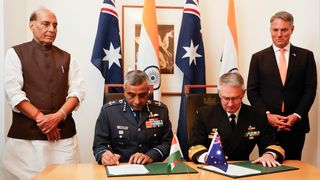The past few years have seen an unprecedented use of economic coercion as a tool of international relations, from sanctions placed on Russia, Iran, and North Korea to the ongoing export control battle between China and the United States. How far will these tools go? Would sanctions work in China in the event of a Taiwan crisis? What would it mean for the private sector and businesses?
To discuss this, USSC hosted a discussion with Adam Smith, a world-leading international trade compliance lawyer and former advisor to President Obama, in conversation with Hayley Channer, Director of Economic Security at the United States Studies Centre.
Adam Smith is a partner and co-chair of the International Trade Practice at Gibson, Dunn & Crutcher, based in Washington DC. He served as a senior advisor in the Obama Administration, providing guidance for strengthening sanctions (Russia and Syria) and easing measures (Burma and Cuba), and on enforcement actions following sanctions violations. He frequently chaired the US Treasury delegation to EU/G7 consultations regarding Russia sanctions and worked on Iran sanctions in conjunction with the nuclear deal. He is the author of three legal texts and dozens of articles and book chapters, and has testified on sanctions before the US Congress and the UK Parliament.







